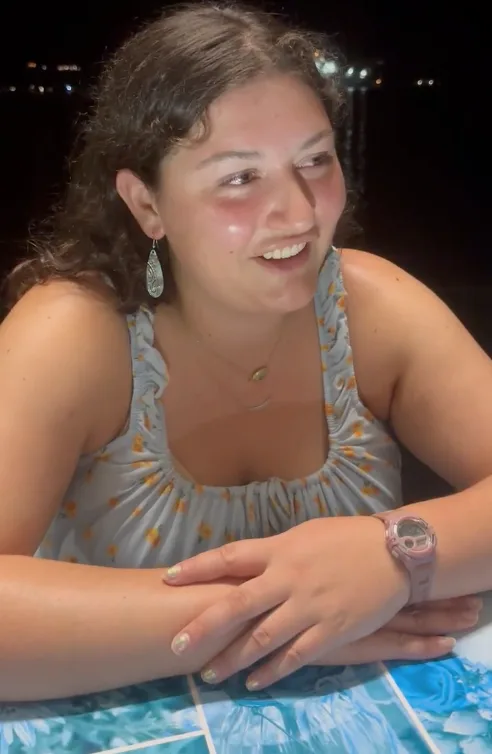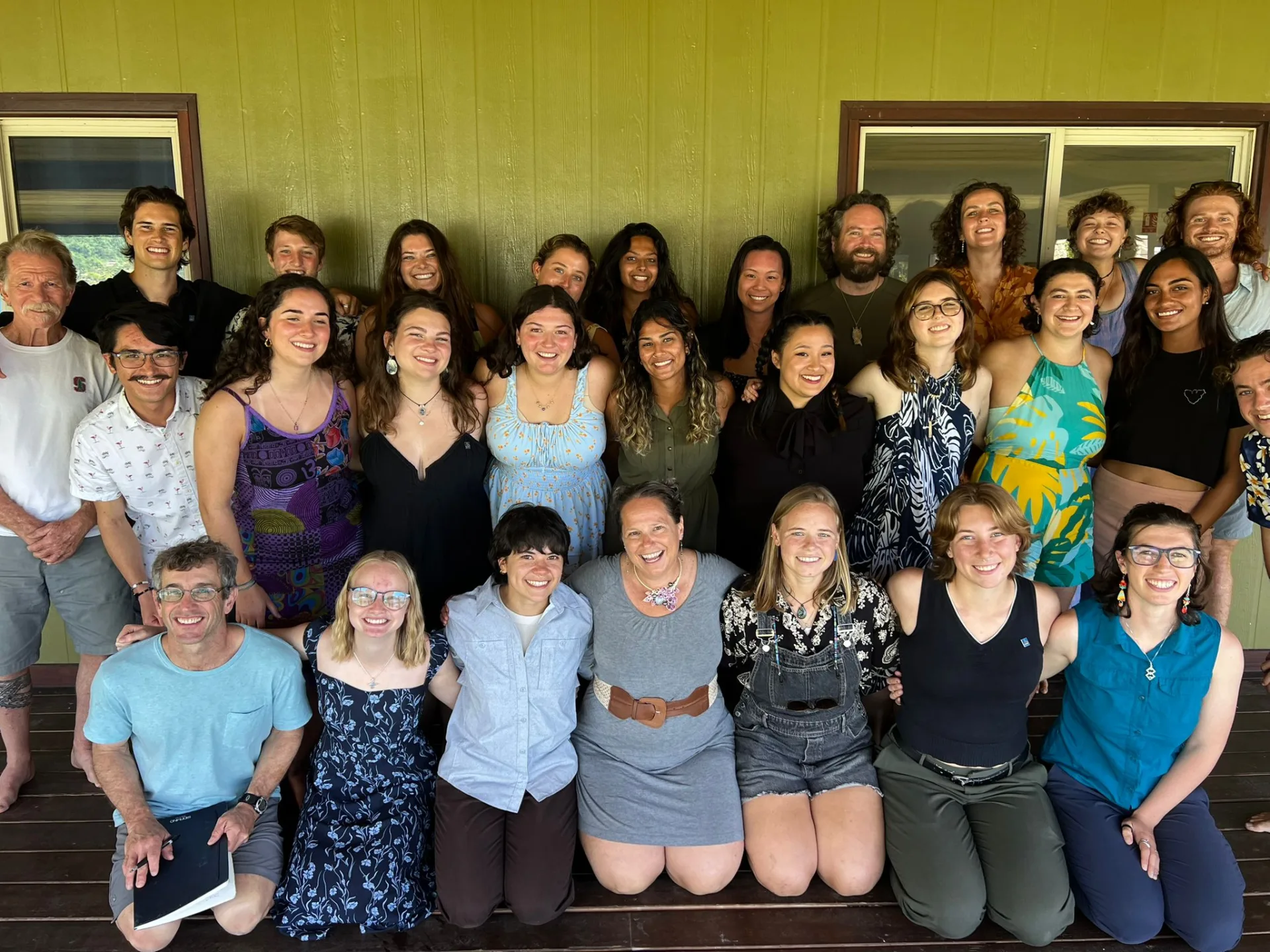Programs Blog
Aimee on the Semester’s End

Date: May 31, 2025
Time: 2110
Location: Gump Marine Station, Mo‘orea
Weather: 74˚ F, 10 kts southeasterly
Below is an excerpt of an interview with Aimee Bousquet, University of New Hampshire, who filmed and organized the videos of all of the previous interviews of her fellow students.
How does it feel to be on the other side of the camera? You have done such a spectacular job. Will you tell us what you’ve been doing?
Thank you! Yes, it’s kind of weird being on this side! I’ve been recording all of the interviews. I’ve really had a good time listening to what my shipmates have been saying. I feel like it’s been super impactful, because we all went through this experience together. I couldn’t imagine this experience with other people. Obviously I have certain things, certain stories that stand out to me, certain moments. I view things one way, so it’s been really cool to see how my classmates see things in a slightly different way—or I was asleep when something happened! It’s been really fun putting these interviews together.
Tell us about this morning’s “Marine Biodiversity and Conservation Student Symposium.”
The symposium I thought went really well. I was definitely nervous for it before. I feel super comfortable performing in other ways: I’m a dancer, I sing, I’m on stage a decent amount. But then you put me in front of a presentation and I’m like I don’t know what I’m doing. But we practiced a lot. I felt pretty confident about what I had to say. I felt like it really well. Also my classmates’ presentations were so amazing. On the ship, you do everybody’s lab work. So, for example, we were doing the hundred-counts that the copepods, and the calcifiers, and siphonophores (research groups) used. You know what’s going on, but you don’t really get a full picture until the symposium. And that was really, really interesting. And then also having our shipmates come back (the professional crew took the ferry over on their day off to come watch!) and to have Herehia come watch it (our tour guide from Mo‘orea, who works as a marine conservationist, diver, surfer…). And I heard over 65 people were watching on Zoom. That’s actually insane! Crazy. Being able to share was super nice.
Since you’re the last student interviewed on the last night of your SEA program, would you reflect on this semester’s experience?
I feel like a lot of my marine science experience has been in the intertidal zone, because that’s where you went on field trips. You go to the coast, do some surveys or whatever. So I was pretty familiar with those organisms, how that ecosystem works. But the open ocean was like totally unknown to me. I think the farthest boat ride I had been on before this was either on a lake or from one island to another. So five-ish weeks out in the open ocean was absolutely amazing. I got to learn SO much about the critters that live there and the processes that occur there. And I think this program has done a really good job of putting things into perspective, of taking marine science and applying it to people. Which is so important, and so amazing. I don’t think I couldn’t have gotten the same experience anywhere else.
Aimee and her classmate Georgia Akins were elected by their peers to be class agents for this class, Marine Biodiversity and Conservation, S321. These interviews were transcribed by Environmental Communications professor Richard King. Stay tuned for their issue of the student magazine, SEA Writer, to be released later this month, June 2025. For our time at Gump Marine Station, we’re particularly grateful to Val Brotherson and all the staff who made our visit so meaningful and seamless.

Recent Posts from the Ships
- Ocean Classroom 2024-A collaborative high school program with Proctor Academy
- Collaborations and Long-term Commitments: SEA’s Caribbean Reef Program Sets a Course for Coastal Programs that Compliment Shipboard Experiences.
- Sea Education Association students prepare for life underway using state of the art nautical simulation from Wartsila Corporation.
- SEA Writer 2022, Magazines From the Summer SEA Quest Students
- Technology@SEA: Upgrades Allow Insight into Ocean Depths
Programs
- Gap Year
- Ocean Exploration
- High School
- Science at SEA
- SEA Expedition
- SEAScape
- Pre-College
- Proctor Ocean Classroom
- Protecting the Phoenix Islands
- SPICE
- Stanford@SEA
- Undergraduate
- Climate and Society
- Climate Change and Coastal Resilience
- Coral Reef Conservation
- Marine Biodiversity and Conservation
- MBL
- Ocean Exploration: Plastics
- Ocean Policy: Marine Protected Areas
- Oceans and Climate
- Pacific Reef Expedition
- The Global Ocean: Hawai'i
- The Global Ocean: New Zealand